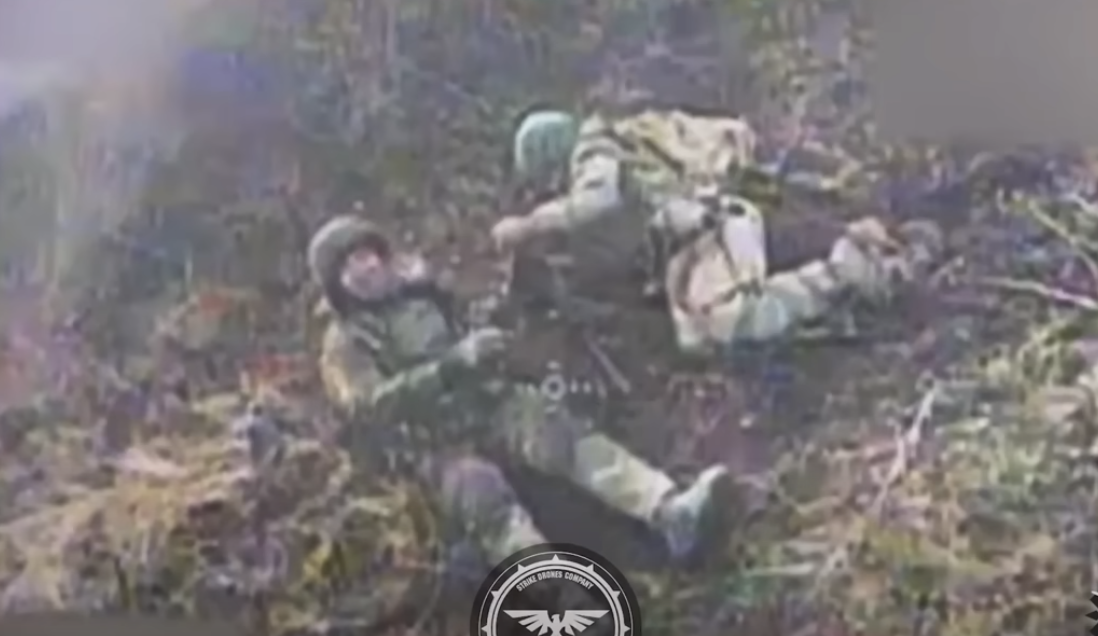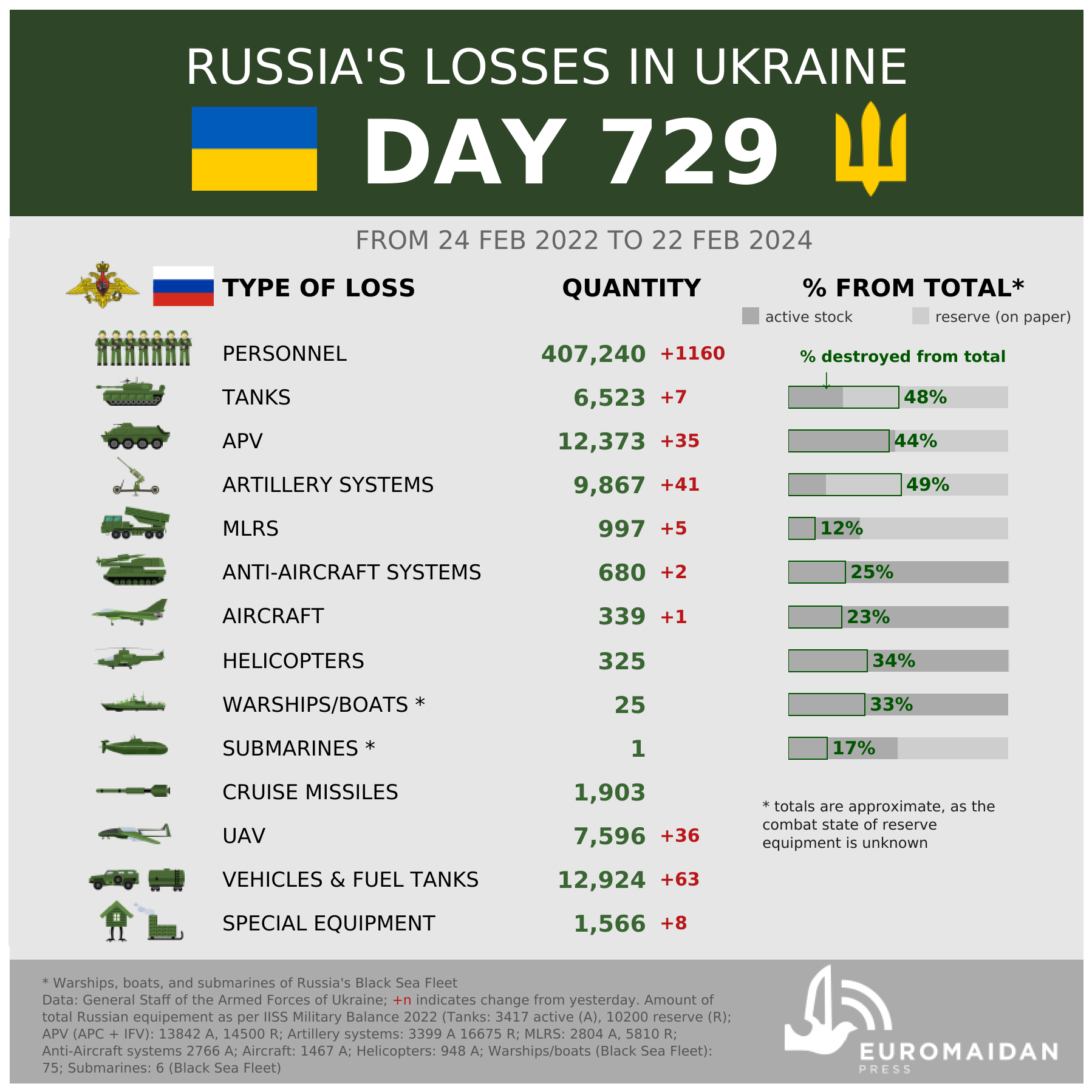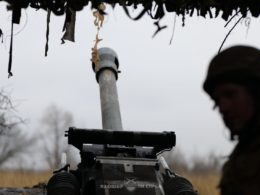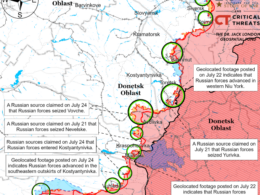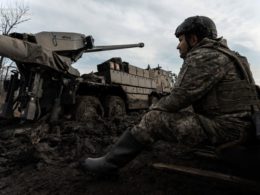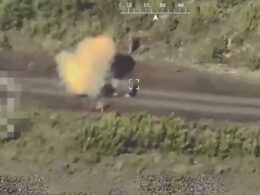Prominent Russian military blogger Andrei Morozov reportedly died by suicide on 21 February after refusing to delete his reports on high Russian casualties around Avdiivka, according to the US-based Institute for the Study of War (ISW).
Ukraine reported heavy Russian casualties during a months-long campaign to seize Avdiivka. On 17 February 2024, as their forces withdrew, Ukraine's Tavria Group spokesman Dmytro Lykhovii stated that Russia lost 20,607 troops, 201 tanks, and 492 armored fighting vehicles during the final stage of the battle, between 1 January 1 and 16 February 2024.
According to ISW, Sergeant Andrei Morozov, also known as Boytsovskiy Kot Murz, served in the Russian 4th Separate Motorized Rifle Brigade (2nd "Luhansk People's Republic" Army Corps) and was a vocal critic of the Russian military command and the Ministry of Defense.
In a detailed suicide note, Morozov revealed that a Russian colonel ordered him on 20 February to delete his 19 February report, which claimed that 16,000 Russian personnel had died in combat during offensive operations in Avdiivka, Donetsk Oblast.
The colonel allegedly threatened to withhold supplies from Morozov's unit unless he removed his reports on Russian casualties in Avdiivka, suggesting that only presidential elections could effect change. Morozov suspected the colonel was acting on directives from higher military and political authorities, including propagandists like Vladimir Solovyov, who had previously targeted him.
Morozov stated that he sought to reveal the truth about the situation on the battlefield and could not continue serving under an abusive colonel leading a severely weakened brigade in a critical area, whose poor leadership exacerbated the challenges faced by Russian forces. He also suggested that Russian authorities might have planned to kill or arrest him and expressed disillusionment with his futile struggle against the inefficient Russian military bureaucracy.
In his suicide note, Morozov elaborated on Russian military shortcomings in Avdiivka and Donetsk Oblast. He criticized Russian generals for wastefully sacrificing servicemen to further their careers and suggested that most Russian journalists falsify reports on battlefield conditions.
Morozov noted that the Russian military command increasingly deployed mobilized personnel as barrier forces to prevent retreats or refusals to attack. He highlighted a formal complaint from a mobilized serviceman of the 1487th Regiment (under the 1st Donetsk People's Republic Army Corps), which was rejected by the Russian military prosecutor's office in early February.
The mobilized serviceman reported that the 1487th Regiment's strength had diminished to less than 30 percent due to a lack of reinforcements and rotations since its deployment in mid-January 2023.
The serviceman stated that in November 2023, the commander of the 1st Army Corps, known as "Krym" (Crimea), transferred 300 servicemen from the 1487th Regiment to the Russian "Veterany" private military company (PMC), most of whom were killed or injured in the Avdiivka area.
The serviceman accused the "Veterany" PMC, allegedly staffed with convicts, drug addicts, and looters, of using mobilized personnel as barrier troops and avoiding participation in assaults. He noted that his battalion lacked essential equipment for offensive operations, such as grenade launchers, mortars, and vehicles. He also reported that Russian military medical staff refused to treat shellshocked servicemen, sending them back to the frontlines without medical examinations, a problem that he claimed was systemic across other Russian units.
According to the Ukrainian Army's General Staff, Russia's daily military fatality rate has averaged around 1,000 for the past few months, with total losses exceeding 400,000 since the full-scale invasion began.
Read more:
- Ukraine in 2024: A defensive war with no chance of counteroffensive, German official says
- Ukrainian ombudsman calls on UN to investigate executions at Zenit stronghold
- Frontline report: Tanks and troops stymied as Russia loses planes striking westward
- UK Intel: bloodied Russian troops need “period of rest” after Avdiivka, seek more gains
- ISW: Russia achieved localized air superiority in Avdiivka before capturing it

